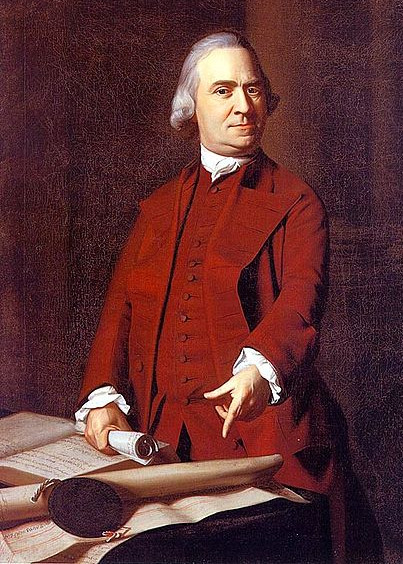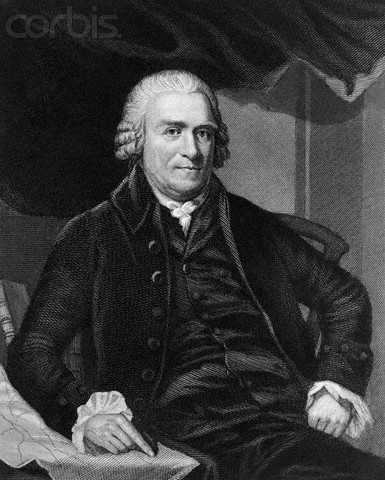Samuel Adams is truly a figure one can look at and see how a man who disregards money, but seeks the welfare and common good of the people, can go down in the history books as a great man.
Early Life & Education

Samuel Adams, painted by John Singleton Copley in 1772.
Public domain image.
Samuel Adams was born on September 27, 1722 in Massachusetts. He was one of 3 surviving children out of the 12 born to Samuel and Mary Adams. He was second cousin to President John Adams. Samuel attended Boston Latin School and then studied at Harvard in 1736. His parents urged him to go into ministry, but he shifted to politics. He graduated from Harvard in 1743 with a master’s degree in politics.
After Harvard, Adams was not certain where to go. He started a job at a counting house, but that did not last too long because his boss thought that he was too easily sidetracked with politics to ever be good at that trade. His father then loaned him a substantial amount of money to start his own business, but Samuel, being terrible with money, lent half of it to a friend and was never repaid and the other half he nickeled and dimed away. This confirmed that he was never going to be a business man.
After his failure at business, his father gave him a job at a family owned malthouse, where he worked as a maltster. In 1748, Samuel and some friends, angered by the British impositions, launched their own newspaper. There they wrote political essays for the public to read. He urged people to resist any encroachments on their personal lives or liberties.
Samuel inherited the responsibility of the family’s affairs upon the death of Samuel Adams, Sr. later that same year. Shortly after, he married his pastor’s daughter, Elizabeth Checkley. She died after giving birth to their sixth child in 1757, however only two of their children lived to be adults. Heartbroken, he did not remarry until 1764, when he took Elizabeth Wells to be his wife.

Samuel Adams, painted by Major John Johnston in 1795 while Adams was Governor. Public domain image.
In 1747, Samuel Adams was elected to his first political office as a clerk to the Boston market. He became a tax collector in 1756, he often did not collect taxes from people, and while this made him very popular among the town’s citizens, he shorted his own income a lot. Later, after the Seven Years’ War, Samuel had become a prominent figurehead in his political group for the struggle against Great Britain.
When Britain started taxing America, Samuel Adams was one of the leading public opposers. Samuel, as one of the <a href=”sons-of-liberty.html”>Sons of Liberty, took a leading role in starting the Boston Tea Party of 1773, although his exact involvement is still disputed. Upon the ship’s arrival in the Boston harbor, he passed a circular note to invite the townspeople to a secret gathering. Hundreds of people showed, and Samuel fired up the room with a spirit of revolution, urging the people to send the ship back without paying. This spirit of revolution led only to the Boston Tea Party, causing the British great monetary loss.
During the Revolutionary War, Adams was a member of the first and second Continental Congress. Samuel fought indefatigably to sway congress toward independence. In 1776, Samuel Adams was a proud signer of the United States Declaration of Independence. After the signing of the Declaration, he worked in the military committees and even joined the war briefly in 1777.
Massachusetts Senate
He continued helping in political aspects of war through the Revolution, and upon reaching the end of the war he returned to his home in Massachusetts. He was elected to the state senate in Massachusetts, and served as that body’s president. Later, he took part in the promotion of Massachusetts providing free education for children, even women. Adams spent the remainder of his life fighting political battles for the better of the people in his country, until he died on October 2, 1803.
Samuel Adams is proof that a man who disregards money but seeks the welfare and common good of the people can go down in the history books as a great man.


